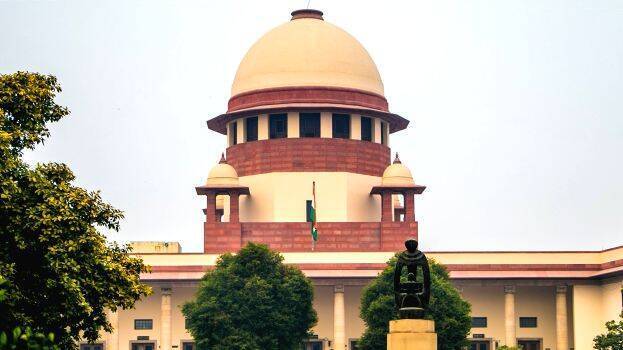




There is not even one state which has not complained to the Centre about not getting its deserved tax share. At the same time, the Union Finance Ministry will present numbers claiming that it gave the states more money than they deserve. Recently, Kerala had approached the Supreme Court on this issue. Following the intervention of the Supreme Court, Kerala received emergency financial assistance from the Centre. However, the apex court did not direct the Centre to pay the entire amount demanded by the state. In India's federal system, the relationship between the Centre and the states exists and progresses through cooperation and coordination. However, power disputes exist between the states and the Centre on some issues.
One of the major issues in which the Centre and the states disagreed was regarding the power to impose taxes on mines and minerals. The dispute has been finally settled with the majority verdict of the nine-judge Constitution Bench of the Supreme Court. In a majority (8-1) verdict, the court held that the Centre has no right to restrict the power of the state government to impose taxes on mines, mineral deposits and quarries in the states. The apex court stated that the Parliament has no constitutional right to interfere in the matter as any kind of dilution in the taxing powers of the state legislatures will necessarily impact their ability to raise revenues, which in turn will impede their ability to deliver welfare schemes and services to the people.
The court issued the verdict after considering the issue of whether states can impose taxes on mines and minerals in addition to royalties they receive under the Mines and Minerals Act of 1957. All nine judges agreed that the royalty amount cannot be considered a tax. The majority decision also stated that the Supreme Court decision of 1989, which categorized royalty as a tax, was incorrect. The fact that the per capita income of the mineral-rich states of Chhattisgarh, Jharkhand and Odisha is much lower than the national average also contributed to the favourable verdict for the states. The court issued the verdict settling 86 appeals filed by various states, mining companies and public sector entities. Currently, just four or five states will benefit more from this decision. However, this verdict will benefit any states in which new natural resources are discovered in the future.
The right to collect tax related to land is vested in the State Governments under Entry 49 of the State List. The court ruled that land with mineral deposits in the respective states would also come under this and therefore the state governments have the right to impose taxes. However, in a dissenting judgment, Justice Nagarathna stated that states do not have the right to impose taxes on mineral-rich lands like any other land.
Although Kerala is blessed with mineral wealth like titanium and black sand, the state is still reluctant to use them on an industrial basis due to various reasons. In light of this new ruling, our state should also start thinking about adopting a changed approach.